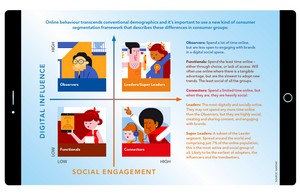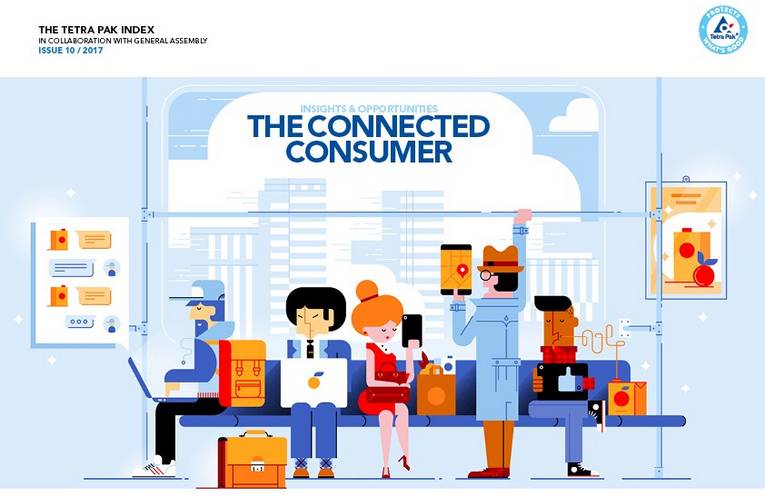Super Leaders – a newly-defined digital community of early adopters and brand amplifiers – are now the most influential group in building, or eroding, brand preference, according to the Tetra Pak Index 2017. Companies that fail to engage with Super Leaders in the right way risk missing the opportunity to harness their influence and help them build their business.
Brands need to focus their online engagement on a new generation of influencers if they are to thrive in a connected, information-saturated world, according to the Tetra Pak 2017 Index. The company has identified a group of Super Leaders, the most influential subset of the wider online community. When engaged, these influencers can become brand advocates to spread messages, shape opinions and help build trust in products.
The report shows that third-party, user-generated content is becoming increasingly important, and is often more convincing than direct communications from brands. By engaging the Super Leaders, brands can concentrate their resources on a smaller group, while reaching a wider connected audience. As case studies in the report illustrate, many brands have already begun this approach.
 Representing just 7% of the online population, Super Leaders are the most active and social people online. More than half (57%) of them write brand and/or product reviews every week, and nearly two-thirds (65%) say they are more likely to do so after a positive experience. In addition, more than three-quarters (78%) expect brands to reply to their reviews and ratings, saying that interacting with brands on social media improves their opinion of that brand (79%).
Representing just 7% of the online population, Super Leaders are the most active and social people online. More than half (57%) of them write brand and/or product reviews every week, and nearly two-thirds (65%) say they are more likely to do so after a positive experience. In addition, more than three-quarters (78%) expect brands to reply to their reviews and ratings, saying that interacting with brands on social media improves their opinion of that brand (79%).
The report also shows how the customer journey is shifting from a relatively linear process to a complex network of multiple touch points. Consumers today search for product information before, during and after buying. They refer to at least four information sources pre-purchase, many of which are beyond the control of brands – all the more reason for companies to engage the Super Leaders, as their reviews and conversations with brands form one of the most credible information sources for consumers.
Alexandre Carvalho, Director Marketing Services at Tetra Pak said: “Using new ways to reach the connected consumers is especially important when you think of Generation Z and others who are becoming an important consumer group. They have been brought up in a digital world, and expect brands to communicate in a similar way. The age of passive, one-way communication is over. Brands need to adjust their communications and use more channel-specific, smart, authentic and engaging content if they are to seize the opportunities in this new world.”
 In addition, the report demonstrates that packaging has an important role to play in offering a gateway to greater consumer engagement. For example, digital codes printed on packages can improve transparency of traceability, allowing consumers to access information about the product right down to the source. The package can also be transformed into a platform for two-way information flow where brands can capture specific, valuable data about their consumers as well as share more information about the product itself.
In addition, the report demonstrates that packaging has an important role to play in offering a gateway to greater consumer engagement. For example, digital codes printed on packages can improve transparency of traceability, allowing consumers to access information about the product right down to the source. The package can also be transformed into a platform for two-way information flow where brands can capture specific, valuable data about their consumers as well as share more information about the product itself.
Alexandre Carvalho, Director Marketing Services at Tetra Pak said: “The digital package gives brand owners a direct link to the consumer through an important communication channel – the product itself. To make the most of this fully owned channel, we are piloting the use of augmented reality and other digital technology in our packaging to help our customers stay ahead of the game.”
forrás: tetrapak.com 2017.09.06





